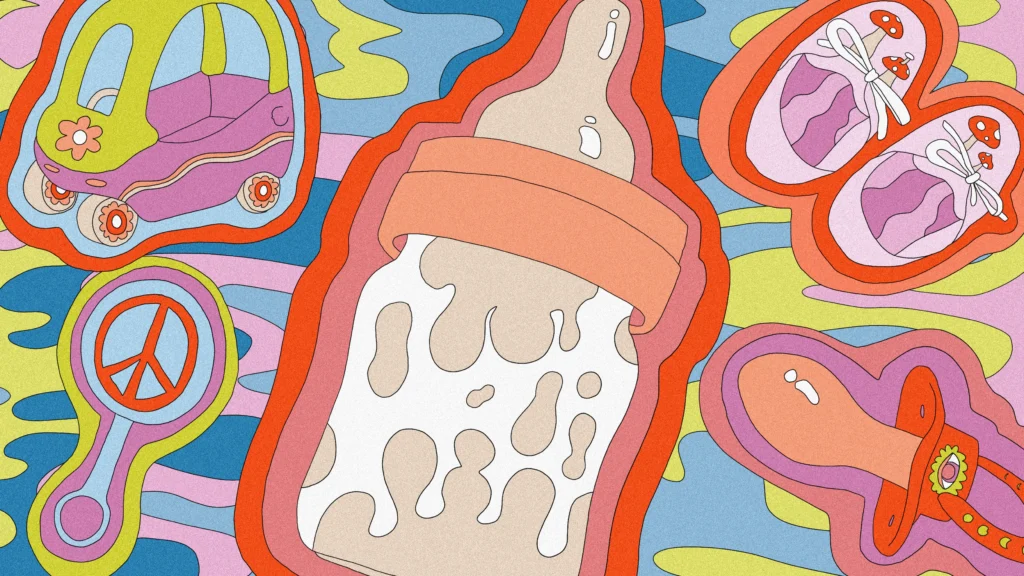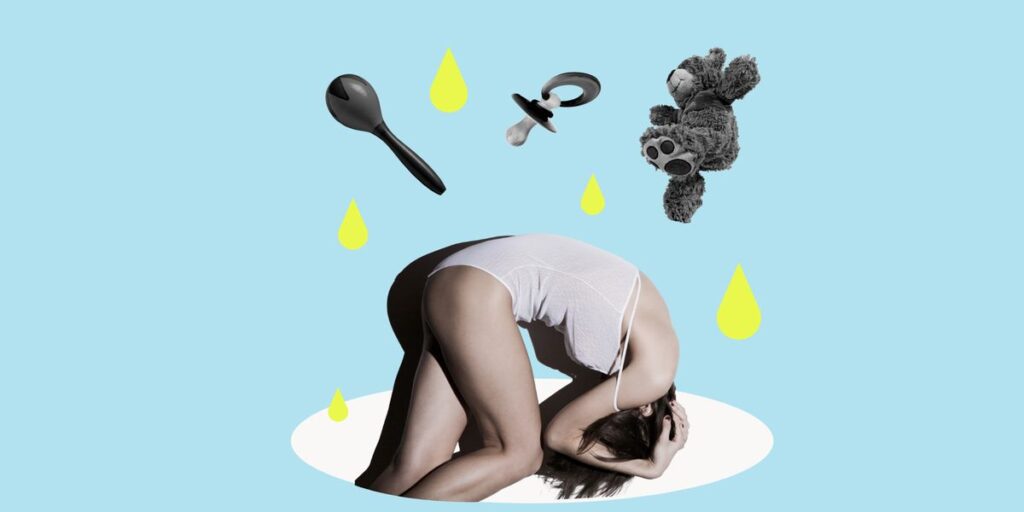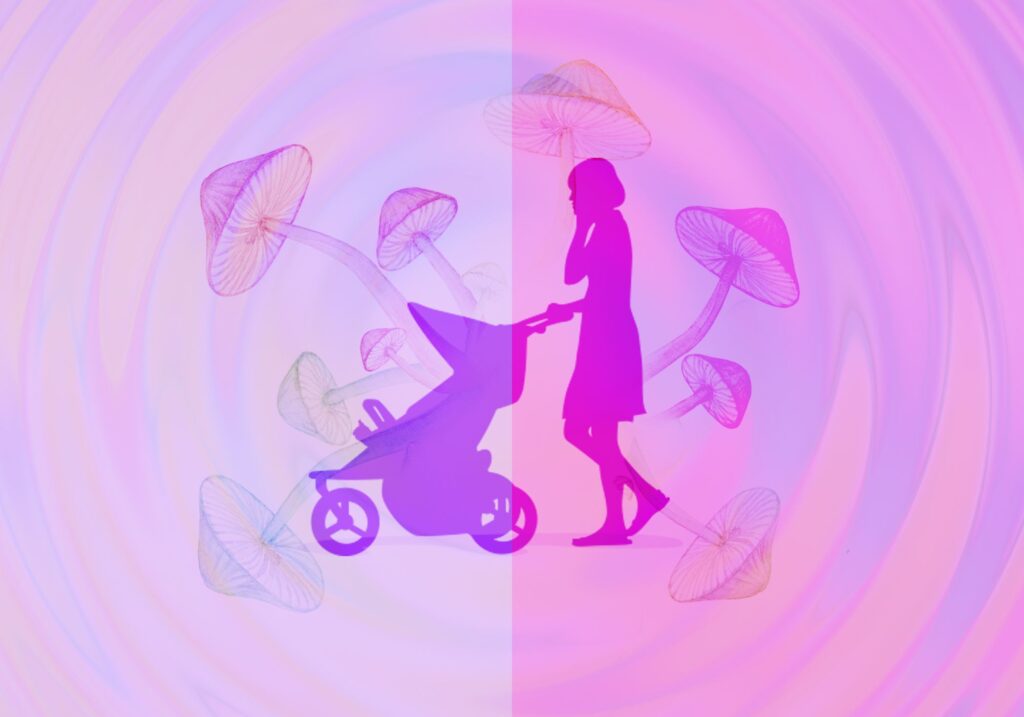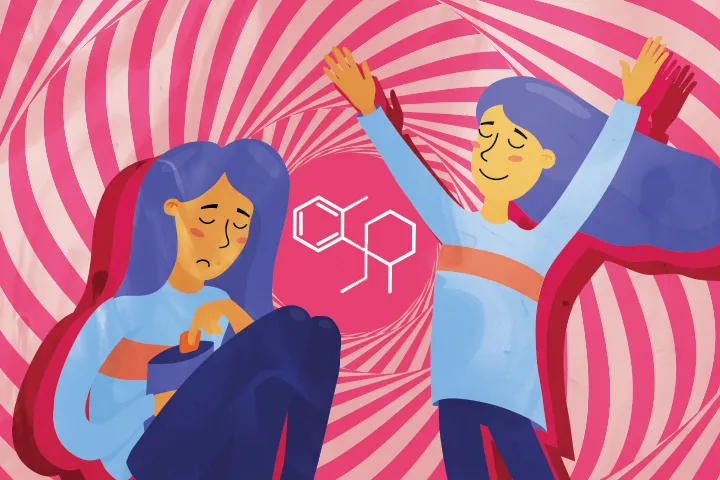
Postpartum depression is a significant health issue. Postpartum depression, among other symptoms, typically involves the mother feeling ‘disconnected’ — from herself, her infant and her support system. Current treatment for postpartum depression is largely based on that used in general adult depression. While these treatment options help some women with postpartum depression, they don’t work for all.
A recent review of the therapeutic use of psychedelics such as lysergic acid diethylamide (LSD) and psilocybin (the active agent in ‘magic mushrooms’) suggests they may be useful in treating postpartum depression by improving the mother-infant relationship. Clinical trials have shown that psilocybin can be safe when used in therapeutic environments alongside appropriate psychedelic therapist support. Psilocybin also shows promise in treating depression in adults .

The symptoms of postpartum depression can include low mood, an inability to feel pleasure, insomnia, poor concentration, and feelings of inadequacy or guilt. One in five women with postpartum depression think about self-harm, and some have thoughts of harming their infant. In addition to these symptoms, or perhaps because of them, most women with postpartum depression lose confidence in their abilities as a mother.
Psychedelics are thought to work by stimulating receptors in the brain for a chemical messenger known as serotonin, setting off a cascade of effects. Hallucinations are thought to occur partly because the substance affect the way our brains filter sensory information through the thalamus. Psychedelics may also affect how different regions of the brain communicate with each other.
Psilocybin can induce altered states of consciousness through ‘mystical-type experiences’. People have reported feelings of interconnectedness, sacredness, and transcendence of space and time. Participants in psilocybin trials to treat depression describe a transformation from a pre-psilocybin ‘disconnection’ from the self, others, and the world, to a renewed sense of ‘connectedness’ after psilocybin. Psilocybin also fosters a sense of openness, self-compassion, and self-acceptance, which is reported to persist for several months. These features may allow a mother with postpartum depression to reconnect with herself, the infant and the people around her, and regain confidence in herself.

Psilocybin Therapy for Postpartum Depression
There’s yet to be formal documentation on the use of psilocybin in treating postpartum depression. However, we can draw some conclusions since postpartum depression is a type of depression.
Firstly, there are different neurological components that are linked to depression. These components are positively affected by psilocybin, which can be applied to postpartum depression.
Secondly, there are anecdotal reports from mothers with postpartum depression stating that psilocybin improved their symptoms.
Ketamine-assisted Therapy for Postpartum Depression
The use of ketamine for the management of postpartum depression is also being studied. A 2021 study highlighted the use of intravenous ketamine. The scores of depression four weeks after ketamine administration were lower than in the control groups.
A very recent study completed in August 2022 also highlights the effectiveness of low-dose ketamine for postpartum depression.
Basically, the idea of using psychedelics to treat postpartum depression is because of their effectiveness in handling depressive disorders. Postpartum depression is a type of depression that occurs in up to 20% of people after childbirth. It’s worth noting that most of these people previously had mental health conditions.
We already understand from currently available studies that psychedelics can improve mood, openness, and self-compassion, increasing connectedness. All of this eventually enhances maternal sensitivity and parent-infant gratification.
MDMA for Postpartum Depression
MDMA is a common option that researchers are exploring for possible treatment of postpartum depression. However, this research is still in its early stages. MDMA-assisted therapy can help patients with postpartum depression due to its effect on pro-sociality, affiliation, compassion, and openness.
The idea is that MDMA-assisted therapy makes it easier for parents to confront unpleasant memories and feelings.




